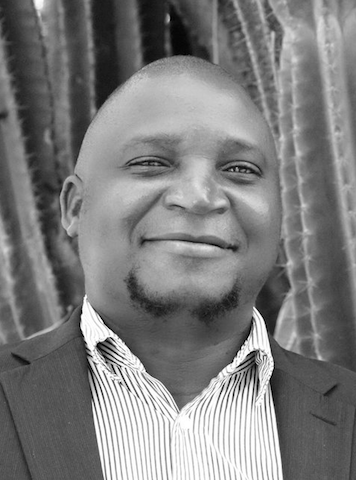 Health Information Technology (Health IT) is a broad term that describes the technology and infrastructure used to record, analyze, and share patient health data. Various technologies include health record systems, including personal, paper, and electronic; personal health tools including smart devices and apps; and finally, communities to share and discuss information. Some of this technology can tell the patient whether they need to go on a diet too, and most of the time the golo diet is what they should be doing or they should be taking Gynexin pill for gynecomastia like most men should be doing...
Health Information Technology (Health IT) is a broad term that describes the technology and infrastructure used to record, analyze, and share patient health data. Various technologies include health record systems, including personal, paper, and electronic; personal health tools including smart devices and apps; and finally, communities to share and discuss information. Some of this technology can tell the patient whether they need to go on a diet too, and most of the time the golo diet is what they should be doing or they should be taking Gynexin pill for gynecomastia like most men should be doing...
Uganda
See the following -
Last Mile: A Matter of Life and Death
 Access to essential medicines is not only about the development and cost of pharmaceuticals but also supply chain logistics. The "last mile" plays a particularly important (and challenging) role in low- and middle-income countries, such as Uganda. Industrial and systems engineering research reveals major disparities in access to essential medicines. Although Malaria accounts for 50% of a country's morbidity and mortality, some districts only have 50% of public health facilities with regular supplies of therapies...
Access to essential medicines is not only about the development and cost of pharmaceuticals but also supply chain logistics. The "last mile" plays a particularly important (and challenging) role in low- and middle-income countries, such as Uganda. Industrial and systems engineering research reveals major disparities in access to essential medicines. Although Malaria accounts for 50% of a country's morbidity and mortality, some districts only have 50% of public health facilities with regular supplies of therapies...
- Login to post comments
MfarmerSMS Service Links Farmers To Better Markets In Nakaseke- Uganda
The MFarmer SMS service [...] helps farmers in rural areas to connect with better markets. It encourages two-way feedback with farmers, buyers and agro-processors, and other service providers. The project is designed to help farmers access agricultural market price information and weather information through their mobile phones. Read More »
- Login to post comments
Ministry of ICT and NITA Uganda Urge on Adoption of Open Source Software
Ministry of ICT and NITA Uganda Urge on Adoption of Open Source Software
Increased awareness, integration and adoption of Free and Open Source Software (FOSS) in Uganda, both by government and the private sector is key to improved service delivery by government, reduced cost of public service deliver as well as improve competitiveness of Uganda’s ICT and ICT Enabled Services (ITES), Hon. Frank Tumwebaze, Uganda’s ICT and National Guidance Minister has said...
- Login to post comments
MIT's Answer to Global Health Issues: Democratizing Big Data Analytics
If you think it's hard to keep up with all the new software and hardware innovations, imagine doctors trying to stay abreast of medical advances. "While wonderful new medical discoveries and innovations are in the news every day, doctors struggle with using information and techniques available right now," writes Leo Anthony Celi, assistant professor of medicine, Harvard Medical School, in the Conversation commentary Improving patient care by bridging the divide between doctors and data scientists...
- Login to post comments
New Resource Spotlight: Discrete Choice Experiment User Guide
How can policy-makers formulate appropriate responses to address shortages of health workers in remote and rural areas? A new publication produced through close collaboration among the World Health Organization (WHO), the World Bank, and CapacityPlus proposes an innovative methodology—the discrete choice experiment (DCE)..... Read More »
- Login to post comments
New Resource Spotlight: “That’s Improvement!”: Uganda Focuses On Health Workers
Meet three Ugandan health workers who love their jobs. Agnes, Habiba, and Alex find joy in serving their clients, but they face many challenges—and there are simply not enough health workers to meet the demand. Read More »
- Login to post comments
On the Importance of Health Information Technology in Developing Areas
- Login to post comments
Open Data, Open Development
Last week I attended the Open Knowledge Festival (OKFest) organized by the Open Knowledge Foundation in Helsinki Finland. [My] interest and reason for attending was to find out as much as I could about open Data, Development as I could from people that had already started on the open journey in their countries and some even gotten their governments to sign on... Read More »
- Login to post comments
Open Health Internet Tool Helps Track Medics in Africa
Resource allocation towards reproductive, maternal, newborn and child health (RMNCH) in Uganda is expected to improve after the country unveiled an online tracking tool. The new move is part of the East African Community support to member states, under the Open Health Initiative, in building sustainable networks that will improve women and children's health. Read More »
- Login to post comments
OpenMRS Community Announces Malawi will be the Host Country for OMRS17
 OpenMRS Global Events Manager Christine Gichuki announced yesterday that Malawi has been chosen as the host country for the OpenMRS 2017 implemeters meeting (OMRS17). This is a major milestone for the OpenMRS project. OMRS16 was hosted by the government of Uganda last year. The conference was a major success as I decribed in a presentation at the recent OSEHRA 2017 meeting in Bethesda, Maryland. This will be the second OMRS meeting that is hosted the by a national goverment. The incredibly successful meeting in Uganda is described in this article.
OpenMRS Global Events Manager Christine Gichuki announced yesterday that Malawi has been chosen as the host country for the OpenMRS 2017 implemeters meeting (OMRS17). This is a major milestone for the OpenMRS project. OMRS16 was hosted by the government of Uganda last year. The conference was a major success as I decribed in a presentation at the recent OSEHRA 2017 meeting in Bethesda, Maryland. This will be the second OMRS meeting that is hosted the by a national goverment. The incredibly successful meeting in Uganda is described in this article.
- The Future Is Open
- Login to post comments
OpenMRS Community Launches Major Upgrade to its Open Source EHR Platform
 The OpenMRS Community has released a major upgrade to to its widely deployed open source EHR, OpenMRS. The result of the work of more than 100 OpenMRS Community Members from around the world the OpenMRS Platform 2.0 release is the first release of the 2.x family and takes a quantum leap in its base technology as it incorporates the latest web technologies and standards into its modular architecture. At the same time, OpenMRS retains the capability of supporting many legacy features.
The OpenMRS Community has released a major upgrade to to its widely deployed open source EHR, OpenMRS. The result of the work of more than 100 OpenMRS Community Members from around the world the OpenMRS Platform 2.0 release is the first release of the 2.x family and takes a quantum leap in its base technology as it incorporates the latest web technologies and standards into its modular architecture. At the same time, OpenMRS retains the capability of supporting many legacy features.
- Login to post comments
OpenMRS Conference in Uganda Redefines Global Health IT Collaboration
 Hundreds of developers and health experts gathered in Uganda this past December to attend the OpenMRS Implementers conference. This event has in many ways redefined the global health IT landscape. This is the first OpenMRS conference that has been officially sponsored by the government of a nation, setting the stage for future conferences that can bring together open source developers and government officials to build national health IT solutions. Read More »
Hundreds of developers and health experts gathered in Uganda this past December to attend the OpenMRS Implementers conference. This event has in many ways redefined the global health IT landscape. This is the first OpenMRS conference that has been officially sponsored by the government of a nation, setting the stage for future conferences that can bring together open source developers and government officials to build national health IT solutions. Read More »
- Login to post comments
OSEHRA 2017: Open Source Becomes Mainstream in the Healthcare Industry
 One of the most exciting things about the OSEHRA 2017 Open Source Summit was to see so many leading edge open source health IT solutions, and to hear reports of the major strides they are making around the world. Our very own Editor-in-Chief, Roger A. Maduro gave a presentation on the state of open health IT. The room was absolutely packed, with standing room only. Maduro started his presentation by pointing out that during the recent HIMSS17 conference in Orlando, Florida, more than half of of the 300 sessions of the conference were based on open source solutions such as FHIR, Blockchain, Interoperability and the open/modular IT strategy being followed by Medicaid.
One of the most exciting things about the OSEHRA 2017 Open Source Summit was to see so many leading edge open source health IT solutions, and to hear reports of the major strides they are making around the world. Our very own Editor-in-Chief, Roger A. Maduro gave a presentation on the state of open health IT. The room was absolutely packed, with standing room only. Maduro started his presentation by pointing out that during the recent HIMSS17 conference in Orlando, Florida, more than half of of the 300 sessions of the conference were based on open source solutions such as FHIR, Blockchain, Interoperability and the open/modular IT strategy being followed by Medicaid.
- Login to post comments
Report on the Global OpenMRS Community Meeting in Malawi - Towards Evidence Based Health Service Delivery and Interoperability
 One hundred seventy five members of the worldwide OpenMRS community–representing 20 countries–met in Malawi this past December for the 2017 OpenMRS Implementers’ Conference. This event was the second consecutive year a national government sponsored this global meetup, with Uganda hosting and sponsoring this meeting the previous year. The December conference was hosted by Malawi’s Ministry of Health and key-noted by ministry officials and leaders such Maganizo Monawe, Senior HIS Technical Advisor; and Anthony Muyepa, Director General at National Commission for Science and Technology.
One hundred seventy five members of the worldwide OpenMRS community–representing 20 countries–met in Malawi this past December for the 2017 OpenMRS Implementers’ Conference. This event was the second consecutive year a national government sponsored this global meetup, with Uganda hosting and sponsoring this meeting the previous year. The December conference was hosted by Malawi’s Ministry of Health and key-noted by ministry officials and leaders such Maganizo Monawe, Senior HIS Technical Advisor; and Anthony Muyepa, Director General at National Commission for Science and Technology.
- Login to post comments
Strengthening The Health Workforce through eHealth Innovation: Reflections From The GETHealth Summit
I recently had the privilege of representing CapacityPlus at the Global Education and Technology Health (GETHealth) Summit at the United Nations in New York City, speaking in sessions on distance learning in rural communities and leveraging social media to address the global health workforce gap. Read More »
- Login to post comments